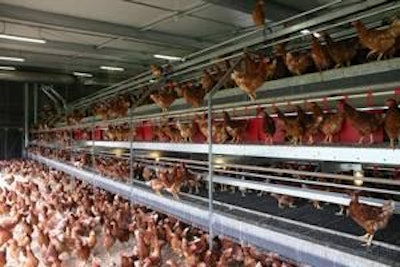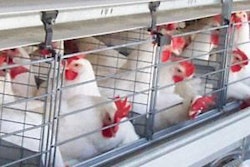
Over the past two years, the Humane Society of the United States has widely publicized the apparent conversion by chain restaurants from purchasing eggs from caged flocks to non-confined housing. The latest case in point involved the Sonic Corporation.
Sonic, based in Oklahoma City, operates 3,500 locations and generated a net income of $7.4 million on revenue of $129 million during the first quarter of fiscal 2010.
The HSUS claimed that Sonic now specifies cage-free eggs for their requirements. As reported by the United Egg Producers, the company will only source 1% of its egg requirements from cage-free flocks with the intention of increasing to 5% by 2015.
It is understood that this approach will be for the purpose of evaluation and is not intended as a corporate policy. As with all members of the National Council of Chain Restaurants, the UEP welfare standards relating to cage density and other management practices are recognized as the accepted U.S. standard, despite exaggerated claims made HSUS.
Proposed study on alternative housing
A number of members of the NCCR, including McDonald's Corporation, have announced their participation in a proposed structured study on alternative housing for egg-laying hens in the U.S. The project will involve academia, producers and customers. It is intended that the research will be led by Michigan State University and the University of California at Davis. The coalition advising the project will include the American Humane Association, American Veterinary Medical Association, USDA-ARS, Cargill Inc. and the Center for Food Integrity.
If the study is to become a reality, additional funding will be required to investigate sustainability, equipment, health and well-being, food safety and worker welfare.


















